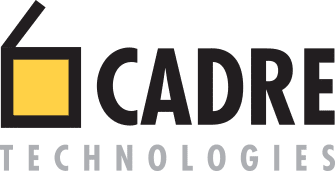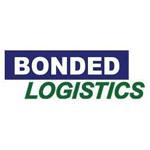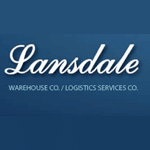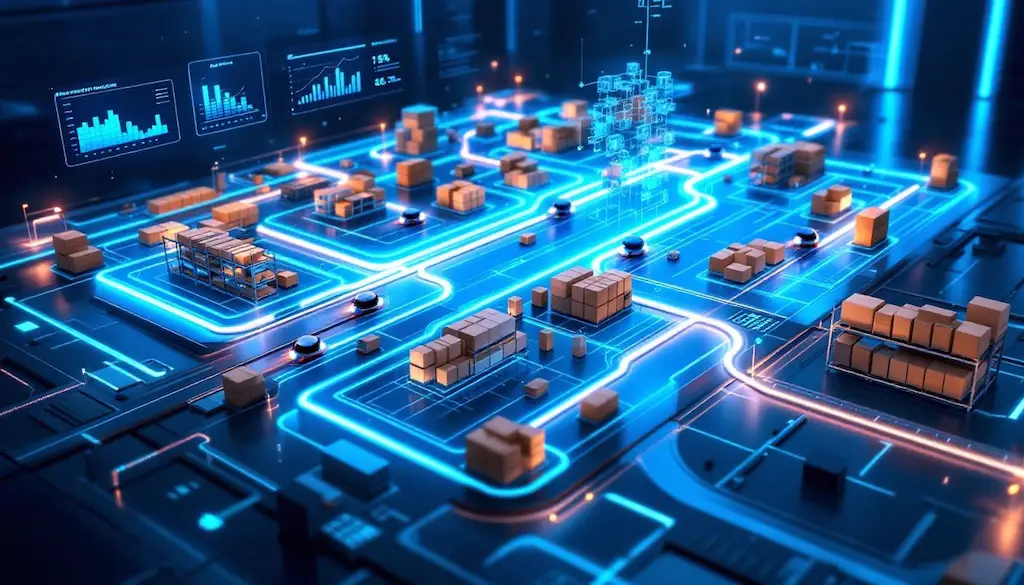A Comprehensive Guide to Food Traceability Software for the Food Supply Chain Industry

The food and supply chain industry is constantly evolving, with new regulations and consumer demands for transparency in food sourcing and production. Food traceability software has emerged as an essential tool to help businesses in this sector maintain compliance, ensure quality control, and optimize their inventory management. This comprehensive guide will explore the importance of food traceability systems, their key features, and how Cadre Technologies can provide a robust solution for your business.
The Importance of Food Traceability in Supply Chains
In the food industry, traceability is a critical aspect of supply chain management. The ability to track and trace raw materials, ingredients, and finished products from their source to the end consumer helps to ensure food safety, minimize the risk of foodborne illnesses, and streamline recall management. Food traceability systems have become an essential tool for food distributors, and retailers to meet regulatory requirements, maintain consumer trust, and enhance overall business performance.
Compliance with Food Industry Standards and Regulations
Traceability software plays a crucial role in helping businesses adhere to various food industry standards and regulations, such as the Food Safety Modernization Act (FSMA), Hazard Analysis and Critical Control Points (HACCP), and Safe Quality Food (SQF) certifications. By integrating traceability systems into their operations, businesses can ensure they meet stringent safety requirements, maintain accurate record-keeping, and demonstrate due diligence during food safety audits.
Key Features of Food Traceability Software
Food traceability software offers several crucial features for businesses in the food supply chain:
- Lot Traceability: Traceability software enables lot and serial number tracking, ensuring accurate trace data throughout the entire distribution process.
- Barcode Scanning: Using barcode labels and RF scanning, allows for quick and efficient identification, tracking, and data capture of food items, streamlining inventory control and order fulfillment.
- Mobile Apps: Mobile apps provide easy access to traceability data and inventory management tools, allowing staff to perform tasks from the shop floor or remotely.
- Integration with Existing Systems: Food traceability software can integrate with other systems, such as inventory management systems, quality control systems, and enterprise resource planning (ERP) systems, to provide a seamless and efficient traceability program.
- Recall Management: Traceability software helps businesses effectively manage product recalls by quickly identifying affected products, reducing the risk of public health incidents and minimizing financial losses.

Benefits of Implementing Food Traceability Software
Implementing food traceability software offers numerous benefits for businesses in the food and supply chain industry:
- Improved Inventory Management: Food traceability software streamlines inventory management, helping businesses optimize their stock levels, reduce waste, and minimize costs.
- Compliance with Regulations: Food traceability systems help businesses comply with regulations such as the Food Safety Modernization Act (FSMA), ensuring they meet industry standards and avoid penalties.
- Increased Consumer Trust: By implementing traceability software, businesses can provide transparency in their supply chain, fostering trust and loyalty among consumers.
- Better Decision-Making: Access to accurate and real-time traceability data enables businesses to make informed decisions, improving their overall operational efficiency and competitiveness.
Cold Storage Traceability
Food traceability software can also help businesses maintain the safety and integrity of their products when stored in cold storage. By tracking the temperature of refrigerated items, businesses can ensure that their products are stored at the appropriate temperature and remain safe for consumption.
Additionally, traceability systems can help businesses monitor the shelf life of their products, helping them to manage inventory and reduce waste. With these capabilities, businesses can confidently store their food items in cold storage and ensure that their products are safe for consumption.
Related: Keeping it Cool with Cold Chain Storage
Choosing the Best Food Traceability Software for Your Business
Selecting the right food traceability software for your business can be a challenging task. Here are some factors to consider when evaluating different traceability solutions:
- industry-Specific Features: Choose a traceability software tailored to the specific needs of your business and industry, addressing unique challenges and requirements.
- Integration Capabilities: Ensure the software can seamlessly integrate with your existing systems, such as ERP, inventory management, and quality control systems, to avoid disruptions in your operations.
- Scalability: Opt for a traceability solution that can grow with your business, accommodating changes in volume, complexity, and regulatory requirements.
- User-Friendly Interface: A user-friendly interface and easy-to-use tools will ensure your staff can quickly adopt and effectively utilize the software.
- Support and Training: Select a provider that offers comprehensive support and training to help you maximize the benefits of the software and resolve any issues that may arise.
- Cost: Consider the overall costs of the software, including licensing fees, implementation costs, and ongoing maintenance expenses. Select a solution that fits within your budget and offers a good return on investment.
Cadre Technologies: A Leading Provider of Distribution and Food Traceability Solutions
Cadre Technologies is a reputable provider of warehousing distribution and food traceability software solutions. Our innovative product suite is designed to meet the needs of food distributors, 3PLs, and retailers, offering comprehensive traceability, inventory management, and compliance features. With Cadre Technologies’ software, businesses can achieve a higher level of visibility and control over their supply chain, improving product quality and ensuring compliance with food safety regulations.
Challenges in Implementing Food Traceability Systems
While food traceability systems offer numerous benefits, businesses may encounter some challenges during implementation:
- Data Standardization: Ensuring data consistency across different systems and stakeholders in the supply chain can be a challenge. Businesses must establish standardized data formats and communication protocols to enable seamless data exchange between various systems and partners.
- Training and Adoption: Employees must be trained to use the food traceability software effectively. Companies should invest in comprehensive training programs and ongoing support to ensure that their staff can fully utilize the system’s capabilities.
- Cost and Return on Investment (ROI): Implementing a food traceability system may require a significant upfront investment in software, hardware, and training. Businesses must carefully evaluate the potential ROI and long-term benefits of the system to ensure that it aligns with their strategic objectives and budget constraints. However, achieving a higher level of traceability and visibility can help businesses improve their operational efficiency, boost profits, and ensure compliance with regulatory requirements.
Advancements in Food Traceability Systems
Food traceability systems have evolved over the years, incorporating new technologies and capabilities to address the growing demands of the food and supply chain industry. Some of these advancements include:
- Internet of Things (IoT): IoT devices, such as RFID tags and sensors, are used to collect and transmit real-time data on raw materials and finished products, providing businesses with valuable insights into their inventory management and distribution processes.
- Artificial Intelligence (AI) and Machine Learning: AI and machine learning algorithms can analyze large volumes of traceability data to identify patterns, trends, and anomalies, helping businesses optimize their supply chain operations and improve their decision-making processes.
- Blockchain Technology: While it’s still in the early stages of industry adoption, blockchain technology may provide a secure, transparent, and tamper-proof platform for recording and sharing traceability data across the supply chain. It can significantly enhance the reliability and efficiency of traceability systems, allowing businesses and customers to access accurate and up-to-date information on food products.

Future Trends in Food Traceability
As the food and supply chain industry continues to evolve, so too will the landscape of food traceability systems. Some emerging trends include:
- Greater Consumer Involvement: Consumers are becoming increasingly interested in the origins and production processes of their food. Traceability systems will likely become more transparent and accessible to end consumers, allowing them to make more informed choices about the products they purchase.
- Enhanced Analytics and Reporting: Advances in data analytics will enable businesses to derive more insights from their traceability data, leading to better decision-making and improved supply chain management.
- Interoperability and Collaboration: As the food industry becomes more interconnected, there will be an increased emphasis on the interoperability of traceability systems, allowing for more seamless collaboration between businesses and stakeholders across the supply chain.
Conclusion
Food traceability software is an essential tool for businesses in the food supply chain industry. By implementing a robust traceability system, companies can enhance their quality control, streamline inventory management, maintain regulatory compliance, and build consumer trust.
Cadre Technologies offers an innovative food traceability solution that caters to the unique needs of food distributors, 3PLs and retailers. By choosing the right traceability software, businesses can ensure the safety and quality of their products, while improving their overall operational efficiency and competitiveness.
FAQs
How Can Food Traceability Software Help Reduce the Risk of Product Recalls?
Food traceability software enables businesses to track and monitor the movement of raw materials, ingredients, and finished products throughout the supply chain. This comprehensive visibility allows companies to identify potential issues and address them before they escalate, reducing the risk of product recalls and minimizing their impact on consumers and the business.
Is Food Traceability Software Suitable for Small and Medium-Sized Businesses?
Yes, food traceability software is scalable and can be customized to fit the needs of businesses of all sizes. Small and medium-sized businesses can benefit from implementing traceability solutions like Cadre Technologies’ WMS to improve their inventory management, ensure compliance with industry regulations, and enhance their competitiveness in the market.
How Can Food Traceability Software Help Businesses Maintain a Business-Compliant Trace Solution?
Traceability software enables businesses to maintain accurate records of their raw materials, ingredients, and finished products, ensuring that they meet industry regulations and standards. By implementing a traceability system, businesses can demonstrate their commitment to food safety and quality, and maintain a compliant trace solution that meets the requirements of regulators and customers.
Can Food Traceability Software Integrate with Other Business Systems?
Yes, this kind of software can be integrated with various business systems, such as ERP, inventory management, and QC systems, to create a seamless and efficient traceability program. This integration helps businesses optimize their operations and gain better visibility and control over their supply chain. Note that systems such as Cadre Technologies WMS software incorporate traceability into our overall warehouse management system. This provides a comprehensive solution for supply chain companies.
How Does Food Traceability Software Support the Distribution Process?
Software designed for food traceability supports the distribution process by providing businesses with real-time data on the movement of products throughout the supply chain. This information enables companies to optimize their distribution routes, improve order fulfillment, and reduce the risk of spoilage or damage to food items. Additionally, traceability systems can help businesses maintain accurate inventory levels, ensuring that products are available for distribution when needed.









